With the FTSE250 at pre-Covid levels, and the FTSE350 actually trading higher, we look at how grocery, retail, leisure and food to go stocks have fared
This week’s grand reopening has been something of a damp squib for retail and food and drink stocks in the City.
The thawing of lockdown and reopening of non-essential shops and pubs was met with a shrug by investors, with the FTSE 100 edging down 0.1% on Monday and the FTSE 250 down 0.4% with little positive movement for retailers or pub groups at the start of the week.
Despite headlines about shoppers queuing round the block to get into clothes shops and scrambling to book tables at pubs, both the general retail and food retail sectors started the week down.
That’s because news of the reopening schedule has already been priced in for UK-based grocery, retail and leisure stocks. After all, the ending of lockdown has been well signposted for months, and it is the lack of new news that is the City’s major focus – rather than getting giddy over the highly publicised progress out of lockdown. Indeed even Tesco’s results today, and takeover speculation swirling around Sainsbury’s as a Czech billionaire builds a stake in the Holborn retailer, has done little to either spook or excite the markets.
The biggest news, in this context, was the announcement of rapid progress on vaccines made in November last year.
Since that news, and despite a third national lockdown, there has been a sustained uptick in share prices – especially among pubs, shuttered retailers and food-to-go specialists – to such an extent that a 25% spike in the overall FTSE 250 means the index is currently 2% higher than it was pre-Covid.
However, they generally still trade significantly down on pre-Covid levels.
Take listed pub stocks. Share prices have rallied strongly as the vaccine rollout has progressed. Up by more than double in many cases. But crucially all are still short of pre-Covid prices:
| Pubs groups | 6 month % change | Feb-20 price | Current price | % Covid change |
|---|---|---|---|---|
| Wetherspoons | 45.4 | 1505 | 1381.4 | –8.21% |
| Marston’s | 106.9 | 106.7 | 96 | –10.03% |
| City Pub Group | 126.7 | 194.6 | 136 | –30.11% |
| Michells & Butlers | 155.9 | 376.6 | 315.6 | –16.20% |
| Restaurant Group | 166.4 | 127.1 | 122.7 | –3.46% |
The same pattern can be observed in food-to-go specialists like Upper Crust owner SSP Group:
| Travel/food-to-go retail | 6 month % change | Feb-20 price (£p) | Current price (£p) | % Covid change |
|---|---|---|---|---|
| SSP Group | 100.9 | 551.3 | 311.5 | –43.50% |
| Greggs | 63.5 | 2440 | 2227 | –8.73% |
| WH Smith | 90.8 | 2400 | 1833.5 | –23.60% |
The picture for more general non-essential retailers is more positive overall as many of them have been able to ramp up online sales during the crisis, with Next and particularly Kingfisher performing strongly. There is expectation of a quicker return of general retail footfall than there is for the return of office workers or tourism and travel.
| Non-essential retail | 6 month % change | Feb-20 price (£p) | Current price (£p) | % Covid change |
|---|---|---|---|---|
| ABF (Primark) | 34.3 | 2583 | 2452.8 | –5.04% |
| Next | 32 | 7078 | 8096 | 14.38% |
| Frasers Group | 38.3 | 491.8 | 497.8 | 1.22% |
| Kingfisher | 11.1 | 219 | 341.8 | 56.07% |
The inverse of this recent six-month recovery applies to online food and grocery specialists, who saw their share price spike post-Covid and the wind taken out of that momentum by the shift back to more normal consumption – before a third lockdown provided another boost. The likelihood online will continue to take a greater share of consumer spend permanently has supported shares at the newly elevated level. That pattern can be seen at Ocado and Just Eat Takeaway.com, with Naked Wines being an outlier due to its growth – seen as above and beyond a pure Covid story.
| Online food/drink | 6 month % change | Feb-20 price (£p) | Current price (£p) | % COVID change |
|---|---|---|---|---|
| Ocado | -13.2 | 1135.5 | 2138 | 88.29% |
| Just Eat Takeaway.com | -13 | 7570 | 7695 | 1.65% |
| Naked Wines | 82.7 | 218 | 802 | 267.89% |
| Domino’s Pizza | -3.8 | 372 | 392.4 | 5.48% |
Conventional supermarkets have seen a sales surge too, of course, but the extra health & safety and infrastructure costs associated with shifting to more online sales has held back profits and muted much share price benefit from these extra sales. Tesco’s shares are in that sense typical, falling further today, off the back of its results announcement, with profits down 20%, though its particular underperformance also reflects the £5bn taken out of the business and given to shareholders as a special dividend in February, rather than any sign of distrust in conventional grocers. Conversely B&M’s overperformance was down to its stores being able to continue trading when it was anticipated they would be forced to close.
While M&S general stores have remained open during the second lockdown (with a number of caveats and restrictions), its shares understandably follow the trends seen in general retail given the importance of its clothing and general merchandise business compared to its grocery rivals.
| Supermarkets/Essential retail | 6 month % change | Feb-20 price (£p) | Current price (£p) | % COVID change |
|---|---|---|---|---|
| Tesco | -17.5 | 323.9 | 227.7 | -29.70% |
| Sainsbury’s | 20.4 | 210.7 | 241.1 | 14.43% |
| Morrisons | 3.9 | 186 | 179.3 | -3.60% |
| Marks & Spencer | 65.2 | 183.4 | 157.6 | -14.07% |
| B&M European Value Retal | 9.5 | 366.6 | 540.2 | 47.35% |
| McColl’s | 41.5 | 42 | 30.4 | -27.62% |
This mixed picture is further illustrated by food and drink suppliers.
Pureplay supermarket supplier Premier Foods has benefited hugely during the Covid period as sales of its traditional ambient favourites have soared. Meat suppliers Hilton and Cranswick, with a more mixed customer base but strong retail sales, have performed solidly. But those who sell into food to go have suffered badly and continue to trade well below pre-Covid levels, despite enjoying the same vaccine rally that pubs and food-to-go operators have seen.
| Grocery suppliers | 6 month % change | Feb-20 price (£p) | Current price (£p) | % Covid change |
|---|---|---|---|---|
| Premier Foods | 0.5 | 34.7 | 97.5 | 180.98% |
| Unilever | –15.3 | 4593 | 4128.5 | –10.11% |
| Hilton Food Group | 4.9 | 1054 | 1206 | 14.42% |
| Cranswick | 7.5 | 3840 | 3796 | –1.15% |
| Greencore | 56 | 251.4 | 160.4 | –36.20% |
| Bakkavor | 94.4 | 137.4 | 122.5 | –10.84% |
While the grand reopening has not seen a spike in retail and leisure share prices this week, the context of the movement of these stocks since November shows how important the vaccine rollout and the ending of lockdown is to consumer industries.
But it also shows how fragile this recovery is, and how it could be rapidly undone by setbacks as we come out of lockdown. In particular, there will be close attention paid to this week’s news of the South African variant identified in South London and how resistant it might be to vaccination.
The FTSE 250 is back at the same pre-Covid position, but wider society is a long way from returning to such normalities. While Covid-hit share prices have recovered somewhat, the overall City picture suggests observers expect many of the changes wrought by the outbreak to be long-lasting if not permanent – and that the virus will still retain primacy in terms of societal behaviours for months if not years to come.










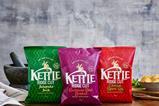

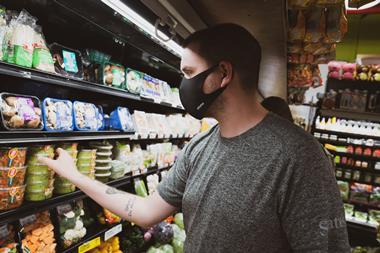
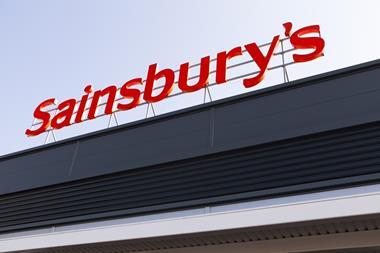
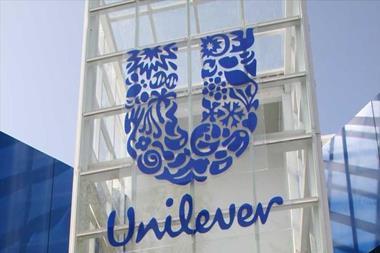
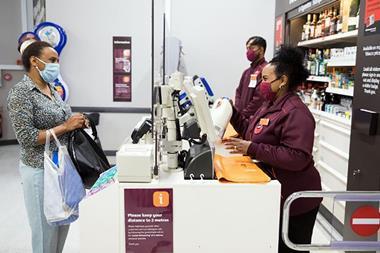
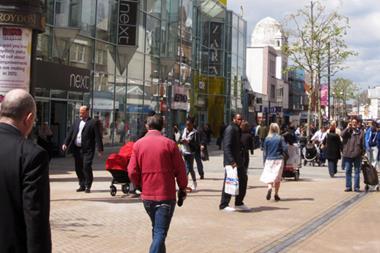







No comments yet